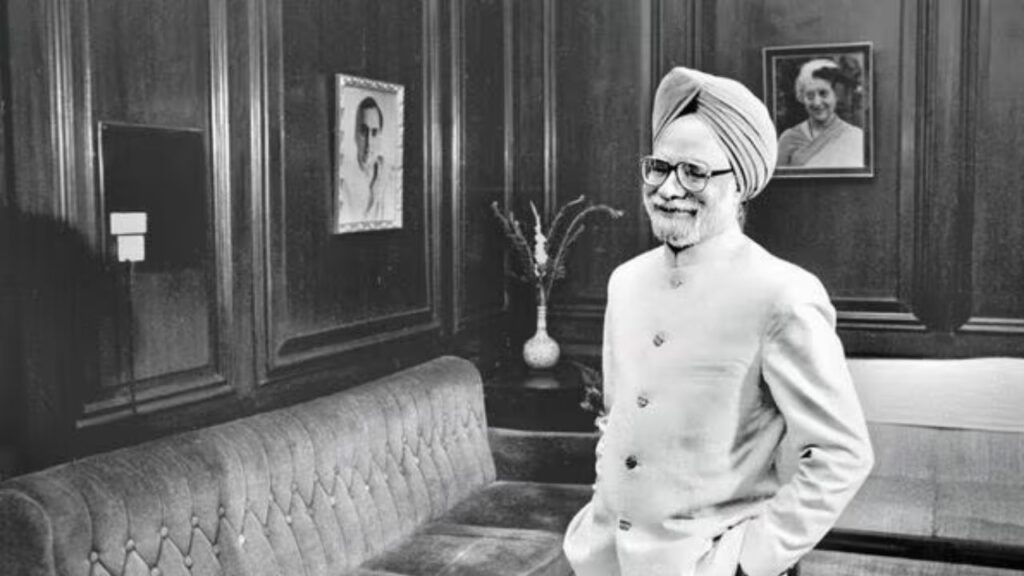In June 1991, India stood on the brink of an economic catastrophe. With foreign exchange reserves plummeting to a mere Rs 2,500 crore, enough to cover just two weeks of imports, and inflation soaring into double digits, the nation faced a grim financial crisis. It was against this backdrop that Dr. Manmohan Singh, a scholarly economist with no prior political experience, was unexpectedly appointed as India’s Finance Minister. This marked the beginning of a transformative journey that would redefine the country’s economic trajectory.
Table of Contents
A Surprising Appointment
Dr. Singh’s appointment was as dramatic as it was unexpected. Then serving as the Chairman of the University Grants Commission, Singh was summoned by Prime Minister P.V. Narasimha Rao, who entrusted him with the crucial finance portfolio. Recalling the moment, Singh remarked, “Everybody was surprised to see me as a member of the new team lined up to take the oath of office.” It was a pivotal decision that would forever alter the course of India’s economy.
Tackling the Economic Crisis
As Finance Minister, Singh inherited an economy constrained by the Licence Raj—a web of stringent regulations that stifled industrial growth. The situation demanded bold and immediate action. Singh, with unwavering support from Rao, initiated a series of sweeping reforms that were crystallized in his historic budget speech on July 24, 1991.
Reforms That Reshaped India
- Dismantling the Licence Raj: Industrial licensing was abolished in all but 18 sectors, freeing businesses from bureaucratic hurdles.
- Encouraging Foreign Direct Investment (FDI): By allowing FDI in 34 industries, Singh opened India’s economy to global investors, fostering innovation and competition.
- Devaluation of the Rupee: This move enhanced export competitiveness, improving the country’s balance of payments.
- Public Sector Reforms: State monopolies were dismantled, and disinvestment in public sector enterprises was initiated.
- Trade Liberalisation: Export controls were removed, and import tariffs were significantly reduced.
- Fiscal Consolidation: Singh prioritized reducing wasteful government expenditure to stabilize the economy.
Singh also championed institutional reforms, such as establishing the Securities and Exchange Board of India (SEBI) to regulate capital markets and restructuring the financial sector under the guidance of a committee led by RBI Governor M. Narasimham.
Overcoming Resistance
The reforms faced significant opposition, particularly from the Bombay Club, a group of industrialists who feared foreign competition. Despite the backlash, Singh and Rao remained resolute. Their determination was vindicated as the reforms spurred entrepreneurship, industrial growth, and economic resilience.
A Lasting Legacy
Dr. Singh’s 1991 budget speech encapsulated his vision: “The price situation, which is of immediate concern to the vast mass of our people, poses a serious problem as inflation has reached a double-digit level.” Through structural reforms and inflation control, Singh laid the foundation for India’s long-term growth. His efforts transformed India from an insular, low-growth economy into one of the fastest-growing major economies globally.
Building on the Foundation
As Prime Minister from 2004 to 2014, Singh continued to build on his economic vision. Landmark initiatives like the Mahatma Gandhi National Rural Employment Guarantee Act (MGNREGA) and the Aadhaar project promoted financial inclusion and reduced welfare leakages. His deft handling of the 2008 global financial crisis further cemented his reputation as a prudent economic strategist.
A Visionary Leader
Dr. Manmohan Singh’s transformative leadership not only rescued India from an economic abyss but also positioned it as a global economic powerhouse. Reflecting on his reforms, Singh stated in Parliament, “After a successful implementation of stabilisation measures and the essential structural and policy reforms, our economy would return to a path of high sustained growth with reasonable price stability and greater social equity.”
Today, his legacy stands as a testament to the power of visionary leadership, economic pragmatism, and unwavering commitment to national progress. Dr. Manmohan Singh’s reforms continue to inspire and shape India’s journey toward economic excellence.

